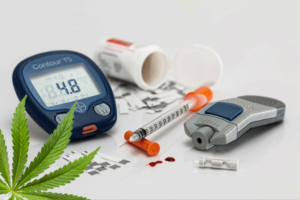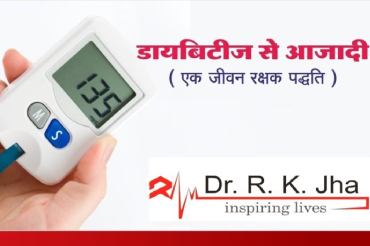It’s beginning to look a lot like… CARBS! Yes, it’s that time of the year for over-indulging. All that delicious food, loaded with sugar. So tasty… so comforting… so… STOP! At least that’s what we’re going to hear the most because we live with diabetes. Oh, yes, the Diabetes Management Program are out to get us. They “know” sugar is bad for us, and they want to keep us away from it. Don’t even look at that nice tray of cookies.

Annoying, right?
So, if this is that special time of the year to eat, drink and be merry, how are we supposed to enjoy the holidays with someone nagging us about what we should and shouldn’t eat? I’ve been there, with someone giving me the stink eye because I went for the sweets. It’s embarrassing, it’s infuriating—especially when you’re chastised in front of everybody—and I know it takes a lot of self-control sometimes not to snap. After all, we’re already living with a condition that limits some of the choices we make, and having someone reminding us of the fact isn’t much fun.
How do we handle it, then? Here are 5 tips:
- Education. I think dealing with the Diabetes Management Program is an opportunity to educate others about how we deal with diabetes and its many complexities. Tell them about how some of us use insulin to help our bodies process carbs; or explain how even people with diabetes can learn to be smart about food choices and exchanges without having to sacrifice a good moment at the table. Most people just don’t know better.
- Planning ahead. We can be honest and upfront, and ask people not to single us out no matter how good their intentions are. Instead of getting reactive, we can be proactive. For example, is there a way to prepare certain foods you know would be healthier? Don’t be afraid to ask if it’s possible to accommodate it.
- Realistic behavior. We know how our bodies work, we know how those 90 grams of carbs will make us feel. So the best way to keep the Diabetes Management Program at bay is probably stay on track with our own management. We have the knowledge, we have the tools, it is our responsibility to take care of ourselves.
- Self-love. The most important thing is to keep in mind that we don’t have to be perfect, and we can’t let other people make us feel bad for not being perfect. Remember Eleanor Roosevelt’s famous quote, “No one can make you feel inferior without your consent.” Accept the challenges, roll with the punches, correct whenever you have to, and move on. But most of all, demand respect from others.
- Appreciation. In the end, our family and friends think they’re helping us, supporting us, and doing what’s best for us. Understanding what good support looks like for people with diabetes isn’t easy, so we’ve gotta remember that they’re policing and they’re comments are usually coming from a place of love.



No responses yet